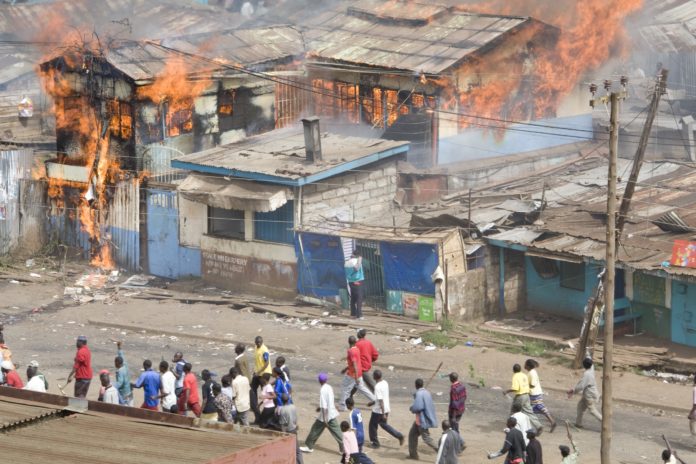Immediately after the announcement of the 2007 presidential election results in Kenya, all hell broke loose across the country as neighbors turned against each other, divided along tribal lines as they defended their political inclinations.
Mary (not her real name), was living in an estate next to a slum in Nairobi when her neighbor’s friend came to her home and purported to be looking for his friend before taking advantage of the situation to pounce on and rape her.
“We fought for quite some time but eventually he overpowered me and that is when he succeeded in violating me,” she narrates.
Traumatized, Mary could not go to the hospital nor police station to report the matter as it was also unsafe for her with the violence that had just broken out. When she finally did, two days later, the officer on duty at the nearby police station put her off.
“He told me to go away as there were more serious matters to deal with at that moment,” Mary says.
The then 40-year-old mother of four had just lost her husband and her fourth-born child was hardly a year old. A few weeks later, she discovered that she had gotten pregnant from the rape. And like many other women who were victims of rape during this period, she never wanted to have the baby; she contemplated abortion and failed three times.
“I then went to the Children Services department and registered to give away the child. But in my delivery room, the nurse on duty was not aware that I was not supposed to even see the child and after I delivered, she put her next to me. When I woke up, I kid you not; I heard the sweetest sound of a child on earth! That is when I embraced, loved and protected her jealously up to now,” she says.
Her daughter is now twelve and Mary says that she’s a very adorable child who according to her is a piece of work, as she is a girl scout, a football captain, and a music leader; a wonderful, beautiful little girl.
Two years later, Mary met the man responsible for the atrocity and says that she froze. “I met him once on the road and he just looked down and walked away. He knew I had a child from the rape. That is when I realized that I had been punishing myself by hating on someone who might not even be aware of what scar he had left in my life. I decided to forgive myself and embrace my life,” she says.
Cases of sexual and gender-based violence are still rampant in Kenya, and even more with the containment measures imposed by the government to curb the spread of COVID-19. A UN situational report from October this year pointed out that 23.6 percent of Kenyans have witnessed or heard cases of domestic violence in their communities since the introduction of COVID-19 containment measures.
After post-election violence, there was hope that the government would come in and ensure the protection of the rights of sexual and gender-based violence survivors are recognized and protected, and also so that they can get meaningful reparation.

In what human rights activists have termed a landmark ruling, the High Court of Kenya, on 10th December, ruled in favor of four of the eight survivors who were backed by several human rights groups.
The four women were awarded 4 million Kenyan Shillings (about $36,596) each in damages. The four, according to the High Court were either violated by police officers and the GSU personnel or had reported the incidents and to the police, got registered in the police records and the police didn’t do anything.
In his judgment, High Court Judge Weldon Korir said that the Kenyan government had failed to conduct “independent and effective investigations and prosecutions” of sexual violence during the period within which there was unrest in the country after the election results were announced.
Naitore Nyamu, a human rights advocate and head of Physicians for Human Rights’ Kenya office (one of the four institutional petitioners in the case) says that as institutional petitioners who supported the survivors go through the petition, they did not agree with that part of the court decision.
“The criteria used by the court to award the four survivors was that three of the individual petitioners had been violated by state agents (meaning the police or GSU officers), and one had registered her case with the police and no action was taken. This does not make all the other cases right,” says Naitore.
However, these were not the only survivors of sexual violence during the skirmishes. Official records from government-supported reports indicated that 900 Kenyans, both male, and female, had suffered sexual violence during the post-election violence period.
Mary says that even though her case did not see the light of day after being thrown out by the police officer when she went to report, the ruling in which her fellow victims were compensated meant a lot for the country in the future. “This will at least ensure that our efforts to have the victim’s voices heard have not been in vain,” she says.
For Naitore, the length of time that it has taken to get justice for these victims is a case of justice delayed and therefore denied.
“When such a weighty case takes long in court, it is justice denied for these survivors. However, it’s a very important case coming from a domestic national court. It’s a landmark case as it is the first of its kind whereby the state is being held to account on sexual and gender-based violations at the national level,” she says.

